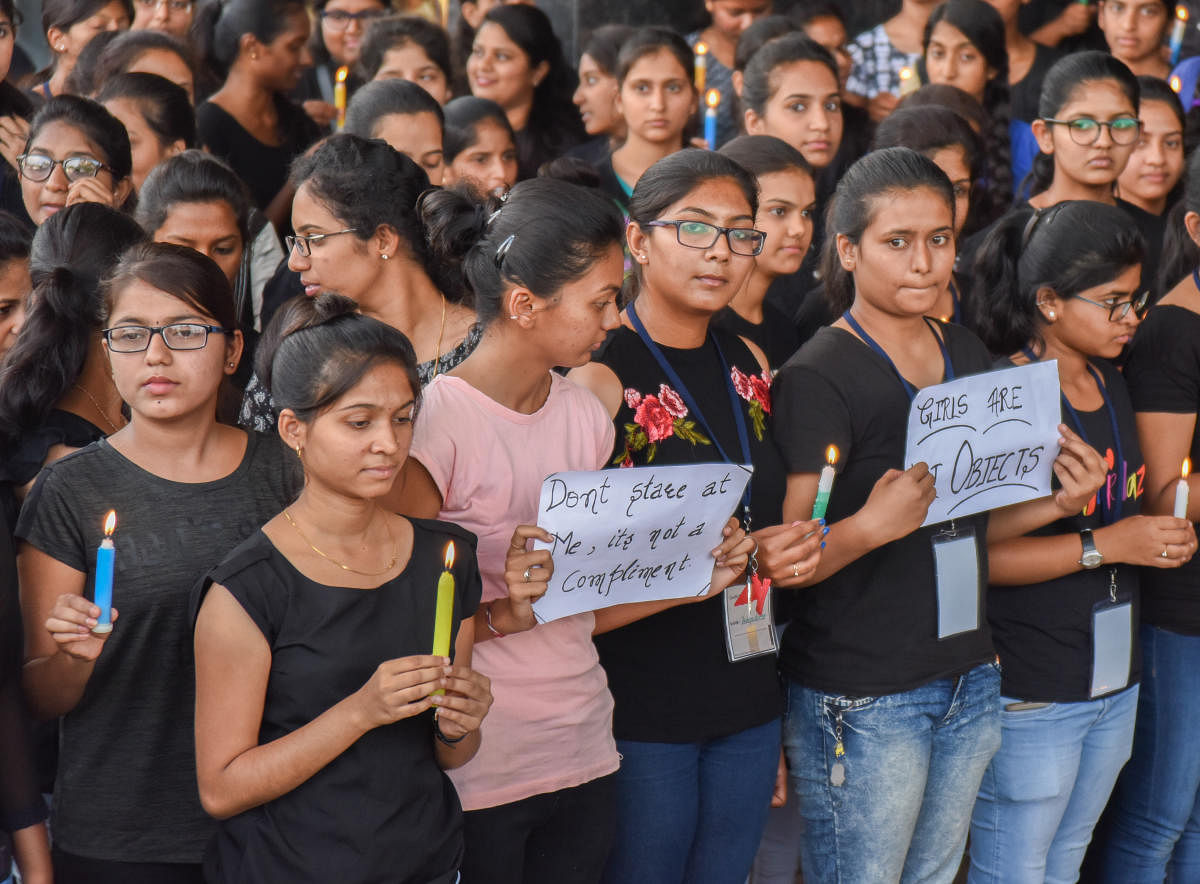
Even as a number of leaders have advocated the death penalty for rape of girls aged below 12, child rights activists across the country have come out against the government's decision to amend the Protection of Children from Sexual Offences (POCSO) Act for this purpose.
The Union Cabinet on Saturday approved an ordinance to allow courts to award death penalty to those convicted of raping children up to 12 years of age.
The criminal law amendment ordinance seeks to amend the Indian Penal Code (IPC), the Evidence Act, the Code of Criminal Procedure (CrPC), and the Protection of Children from Sexual Offences (POCSO) Act to introduce a new provision to sentence convicts of such crimes punishment of death.
"In a country where there is no certainty of conviction, this government wants to bring in more stringent laws. In a country where most rapes are perpetrated by family members, invoking death penalty will only increase the chances of acquittal.
"Most of the cases will not be reported. There is a reason why the death penalty for child rape exists in only about 13 countries or so, most of them Islamic," said Bharti Ali of HAQ centre for child rights.
According to the data of the National Crime Records Bureau, 95 percent of the rapes are committed by family members. The conviction rate in cases of rapes of women is around 24 percent. It is 20 percent under the POCSO Act.
"I believe that the only deterrent in rape cases is a conviction in not more than 90 days. Worldwide we have seen that more than strict punishment, it is speedy justice that works as a deterrent.
"I fear that with the death penalty, most people will not report child rapes, as in most cases the accused are family members. The conviction rate will come down further," Vinod Tikoo, a former member of the National Commission for Protection of Child Rights, said.
According to a recent study by Kailash Satyarthi Children’s Foundation, it would take the courts two decades to clear the backlog of cases related to child sex abuse.
Activists say the government should focus more on strengthening the existing laws, ensuring the safety of victims and witnesses, speedy trials, and awareness generation.
"We already have the death penalty for several offences and that has not led to any deterrence. If we are looking to create a deterrent, then we have to create it where it works.
"Creating a supportive and enabling environment for the victim to report the crime on their terms, effective and meaningful victim and witness protection, sensitive criminal justice system - including courts, legal aid and police, rehabilitation and ensuring certainty of conviction of the accused are among the areas which will generate deterrence," said Ananth Kumar Asthana, advocate and child rights activist.
The government's move to amend the law to award the death penalty for rape of girls aged below 12 comes amid a nationwide furore over the brutal rape of an eight-year-old girl in Jammu and Kashmir's Kathua district, the alleged rape of a minor in UP's Unnao by a BJP MLA, and other incidents of sexual violence reported from different parts of the country recently.
Union minister of Women and Children Development Maneka Gandhi had a few days ago asked her department to work on a proposal to amend the POCSO Act to bring in the provision of the death penalty for the rape of a minor below the age of 12 years.
Delhi Commission for Women chief Swati Maliwal has been on a hunger strike at Samta Sthal here demanding death penalty for rapists.
Countries which have the provision of the death penalty for raping minors include China, Qatar, Sudan, UAE, Tajikistan, Tunisia, Bangladesh, Kuwait.